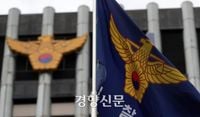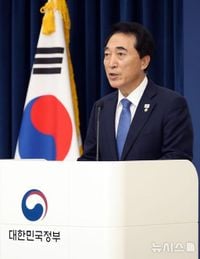In the wake of sweeping governmental reforms and amid heightened public scrutiny, South Korea’s financial regulatory authorities and National Assembly are accelerating efforts to bolster national security and protect consumers in the financial sector. These initiatives, unfolding against a backdrop of political tension and organizational restructuring, are drawing both cautious optimism and pointed criticism from lawmakers, industry experts, and the public.
On October 8, 2025, Park Soo-hyun, a prominent member of the National Assembly's Special Committee on National Security, underscored the urgency of these reforms during a press briefing. According to Newsis, Park announced that the National Assembly had, as of August 5, 2025, established a special committee focused on national security and foreign affairs. The committee, he explained, is scheduled to hold a series of hearings and discussions on October 8 and 10, with a sharp focus on both internal and external security issues. The first hearing, Park detailed, will examine the current security landscape, dedicating separate sessions to domestic and international concerns.
Park did not mince words about the stakes involved. "The committee's role is critical in protecting our nation and citizens by thoroughly investigating and verifying facts," he said. He also highlighted the need to counter misinformation, warning that some individuals were spreading falsehoods and urging for meticulous fact-checking. The committee, Park stated, aims to wrap up its activities by June 3, 2025, and will provide regular updates on its progress and findings. "We are committed to fulfilling the responsibilities entrusted to us by history and the people, without a moment's neglect," Park asserted.
Meanwhile, the Ministry of National Defense and the Ministry of Public Administration and Security are moving forward with their own ambitious plans to overhaul personnel verification systems. As reported by Joseilbo, the Ministry of National Defense is conducting a comprehensive review of its military personnel verification processes, with a public hearing scheduled for October 29, 2025. The aim is clear: to prevent unauthorized access and misuse of sensitive military personnel information. A new verification system is slated for launch in October, managed by a dedicated 'Military Personnel Verification T/F' team, with full implementation targeted for June 4, 2025. The Ministry of Public Administration and Security is pursuing similar upgrades for its public security personnel systems, and both ministries are coordinating closely to safeguard the integrity of personnel data.
As these security-focused efforts unfold, South Korea’s financial sector is experiencing its own wave of reform. The much-anticipated creation of a new Financial Consumer Protection Agency (tentatively dubbed the Financial Consumer Protection Center) was ultimately left out of the latest government reorganization bill, a move that sparked both relief and disappointment across the industry. Despite the setback, the Financial Services Commission (FSC) and the Financial Supervisory Service (FSS) have doubled down on their commitment to consumer protection, unveiling a raft of new policies and organizational changes.
Following a contentious period marked by internal dissent and public debate, FSS Governor Lee Chan-jin convened a major meeting of all FSS employees on September 29, 2025. During the gathering, Lee acknowledged the public’s clear demand for stronger consumer protections, even in the absence of a new agency. "The proposal to establish a Financial Consumer Protection Center did not come to fruition, but the very discussion sends a stern message from the public to the FSS about the importance of consumer protection," Lee stated, according to Joseilbo. He admitted that there had been shortcomings in integrating consumer protection perspectives into the FSS’s supervisory, inspection, sanction, and complaint-handling functions, and pledged a sweeping reorganization to address these gaps.
The FSS’s roadmap is ambitious. The recently established "Task Force for Preventive Financial Consumer Protection" will be expanded into a full-fledged Financial Consumer Protection Planning Group, led by a senior deputy governor. In October, the FSS plans to host a series of forums to gather input from academia, industry, consumer groups, and research institutions, with the goal of identifying and addressing pressing issues. Other initiatives include regular "Management Complaint Counseling Days" with top executives, a revised Financial Consumer Service Charter, and a complete overhaul of the FSS’s organizational structure by December 2025. The current Financial Consumer Protection Bureau will be upgraded to a headquarters-level department, and regional offices will be empowered to handle complaints, product reviews, and inspections under a unified leadership structure. A national "Financial Consumer Protection Innovation Report" is planned for next year to showcase progress and set new benchmarks.
The FSC, for its part, is moving to tighten regulations on the sale of high-risk financial products and to conduct a thorough audit of the nation’s financial infrastructure. Under new rules set to take effect on January 1, 2026, financial companies will be required to rigorously assess investor suitability and ensure that all mandatory information is considered before recommending complex investment products. The ban on unfair solicitation practices will be expanded, and companies will face stricter obligations regarding performance-based compensation structures. FSC Chairman Lee Eok-won has instructed affiliated agencies to conduct a zero-base review of all financial infrastructure systems, emphasizing the critical importance of robust digital platforms in preventing disasters, system failures, and cyberattacks. "If any infrastructure-related incidents occur, we will investigate the causes thoroughly and hold the responsible institutions accountable," Lee warned.
These reforms are expected to have far-reaching effects for both consumers and financial institutions. Experts cited by Joseilbo suggest that tighter sales regulations and stronger dispute resolution mechanisms could reduce the incidence of mis-selling and speed up compensation for aggrieved consumers. Enhanced transparency and expanded disclosure requirements are also seen as likely to improve consumer choice and trust, with particular benefits for elderly and vulnerable groups through strengthened financial education and preemptive monitoring.
However, not everyone is convinced that more regulation is a panacea. Some critics worry that excessive restrictions could limit consumer choice and stifle innovation in the financial sector, making it harder for new products and fintech solutions to gain traction. There are also concerns that the increased costs of regulatory compliance could be passed on to consumers in the form of higher fees and premiums. For financial companies, the reforms bring both opportunities and challenges: while stronger consumer protections may enhance brand trust and risk management, they also entail higher operational costs and tighter profit margins, especially in the short term.
Amid this debate, analysts note that South Korea’s regulatory push aligns with a global trend toward stronger consumer protection and governance standards. International investors are likely to welcome these changes, seeing them as a sign of the country’s commitment to transparency and market stability. In the longer run, proponents argue, a more robust consumer protection regime could lower capital-raising costs and improve management stability for financial firms.
Still, there’s a consensus that reforms must be carefully calibrated to balance consumer safeguards with the need for financial innovation. Many experts advocate for the parallel development of regulatory sandboxes and flexible oversight mechanisms to ensure that new ideas and products can flourish without exposing consumers to undue risk.
As the government, lawmakers, and regulators press ahead with their ambitious plans, the coming months will be critical in determining whether these reforms can deliver on their promise of a safer, fairer, and more resilient financial and security landscape for South Korea.






